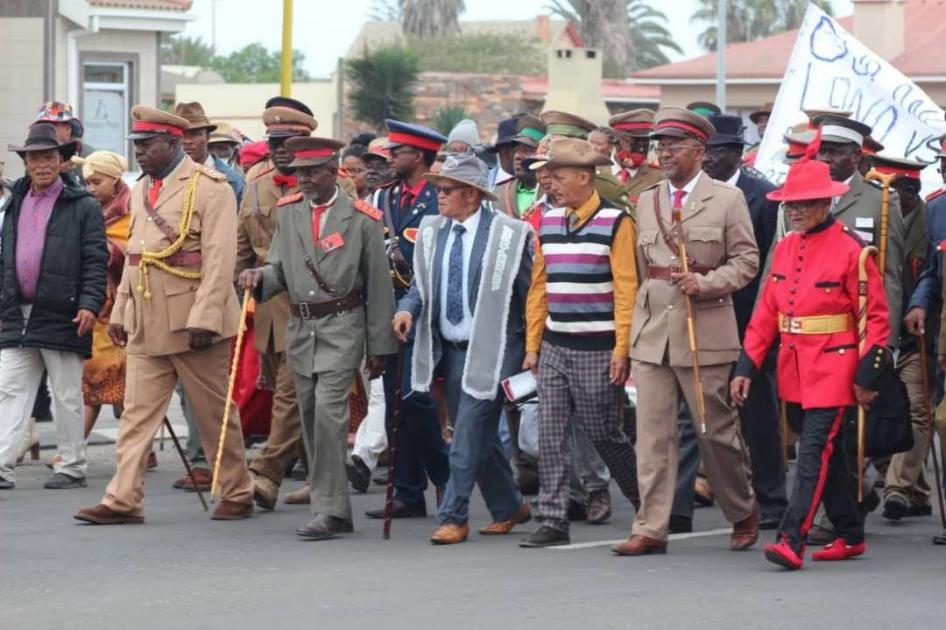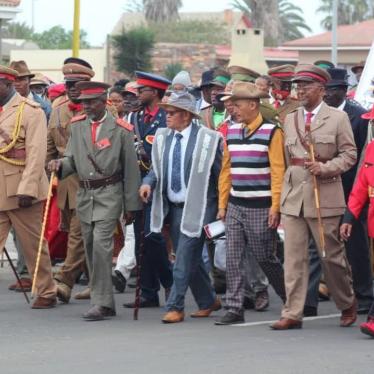The German and Namibian governments are dodging their obligations to ensure the Ovaherero and Nama peoples of Namibia meaningful participation in ongoing negotiations regarding reparations for Germany’s recognized colonial genocide committed between 1904 and 1908.
On February 23, 2023, seven United Nations Special Rapporteurs sent communications to the German and Namibian governments to “express grave concern” at both governments’ alleged failure to ensure the right to meaningful participation.
In their letter, the Rapporteurs reminded Germany and Namibia that while they consider the negotiations a political, bilateral process, as laid out in a 2021 joint declaration, the Indigenous Nama and Ovaherero peoples have their own participation and representation rights. Germany attempts to deny its obligation under human rights law granting the affected communities a right to participation in such processes.
The Rapporteurs also stressed that, contrary to Germany’s continued contestations, colonial crimes should be assessed according to “today’s legal standards” and not “racist and discriminatory laws imposed by the colonial power of the time.”
The Rapporteurs expressed concern about Germany’s position against victims’ claims for compensation, as it plans to give only “collective development aid” instead of effective reparations.
Namibia responded to the UN experts on May 30, alleging unfair blame on its government and claiming it has meaningfully engaged with the Ovaherero and Nama peoples. Germany’s June 1 response repeated previous defenses of the process, declaring that both governments “stand by the initialed joint declaration,” and that the Ovaherero Traditional Authorities (OTA) and Nama Traditional Leaders Association (NTLA) had “turn[ed] down the Namibian Government’s invitation to take part in the reconciliation process.” In fact, the two groups had refused to recognize the joint declaration because it was negotiated without their participation.
A 2006 Namibian parliamentary resolution had required a tripartite process, which is at the heart of a pending court case before Namibia’s high court brought by the OTA, NTLA, and a coalition of national and international lawyers. The plaintiffs had contacted the Special Rapporteurs in 2022.
The German and Namibian governments should reverse course to guarantee a process that centers direct participation by affected communities to respect their rights to full reparations for ongoing harms inflicted by colonial crimes.








